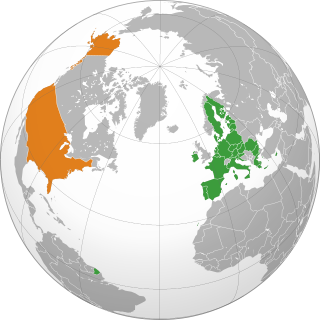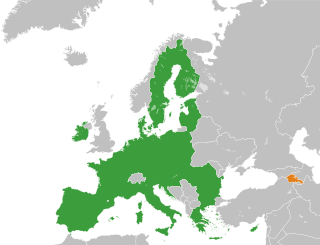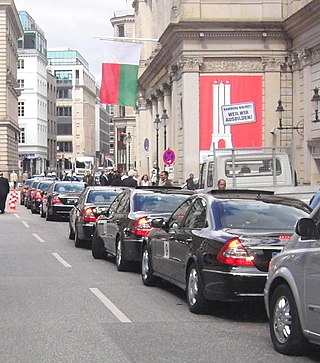Founding board
The EU-Russia Centre Founding Board is made up of four highly experienced European political figures: President: Lord Ashdown (Paddy Ashdown), former leader of the UK's Liberal Democrat party, and most recently the EU's special representative in Bosnia and Herzegovina Dr Günter Burghardt, former EU ambassador to the United States following a 30-year career at senior levels of the European Commission, latterly as director general for external relations from 1993 to 2000 Pat Cox, President of the European Movement and former president of the European Parliament. Heidi Hautala, a Finnish MP (Green Party) and former MEP until 2003 with a particular interest in EU and Russian affairs.
As founding members of the EU-Russia Centre, they provide strategic advice and insights into EU-Russia relations, speak on behalf of the centre and represent its priorities to the EU institutions, European and Russian governments, the media and other policy makers.
Centre Director, Dr Fraser Cameron, a former EU diplomat and adviser, leads the centre's day-to-day activities, supported by Secretary General, Maria Ordzhonikidze.

The foreign relations of the Russian Federation is the policy arm of the government of Russia which guides its interactions with other nations, their citizens, and foreign organizations. This article covers the foreign policy of the Russian Federation since the dissolution of the Soviet Union in late 1991. At present, Russia has no diplomatic relations with Ukraine due to its ongoing invasion of Ukraine. Other than Ukraine, Russia also has no diplomatic relations with Georgia, Bhutan, Federated States of Micronesia and Solomon Islands.

Nils Daniel Carl Bildt is a Swedish politician and diplomat who served as Prime Minister of Sweden from 1991 to 1994. He led the Moderate Party from 1986 to 1999, appearing at its lead candidate in four general elections, before his appointment as Minister for Foreign Affairs under Prime Minister Fredrik Reinfeldt from 2006 to 2014. Bildt first entered the Riksdag in 1979, holding a seat until 2001. A member of the Bildt family, he is a great-great grandson of Baron Gillis Bildt, who was Prime Minister of Sweden from 1888 to 1889.

The Common Foreign and Security Policy (CFSP) is the organised, agreed foreign policy of the European Union (EU) for mainly security and defence diplomacy and actions. CFSP deals only with a specific part of the EU's external relations, which domains include mainly Trade and Commercial Policy and other areas such as funding to third countries, etc. Decisions require unanimity among member states in the Council of the European Union, but once agreed, certain aspects can be further decided by qualified majority voting. Foreign policy is chaired and represented by the EU's High Representative, currently Josep Borrell.
The Bruges Group is a think tank based in the United Kingdom. Founded in 1989, it advocates for a restructuring of Britain's relationship with the European Union and other European countries. Its members and staff campaign against the notion of an "ever-closer union" in Europe and, above all, against British involvement in a single European state. The group is often associated with the Conservative Party, including MPs such as Iain Duncan Smith, Daniel Hannan, John Redwood, and Norman Lamont. However, it is formally an independent all-party think tank, and some Labour MPs and peers have cited the publications or attended the meetings of the Bruges Group through the years, such as Frank Field, Gisela Stuart, Lord Stoddart of Swindon and Lord Shore of Stepney.

The High Representative of the Union for Foreign Affairs and Security Policy/Vice-President of the European Commission (HR/VP) is the chief co-ordinator and representative of the Common Foreign and Security Policy (CFSP) within the European Union (EU). The position is currently held by Josep Borrell Fontelles.

Stavros Lambrinidis is a Greek lawyer and politician who has been the ambassador of the European Union to the United States since March 2019. He was previously the European Union special representative for human rights from 2012 to 2019 and Minister for Foreign Affairs in Greece from June 2011 to November 2011.

The Military Staff of the European Union (EUMS) is the directorate-general of the European Union's (EU) External Action Service (EEAS) that contributes to the EU's Common Security and Defence Policy (CSDP) by providing strategic advice to the High Representative (HR/VP) and commanding operations through its Military Planning and Conduct Capability (MPCC) operational headquarters. From the end of 2020, the MPCC will be capable of running executive operations of up to 2,500 troops, i.e. the size of one EU battle group, as well as 3 non-executive missions.

Relations between the European Union and the United States began in 1953, when US diplomats visited the European Coal and Steel Community in addition to the national governments of its six founding countries. The two parties share a good relationship which is strengthened by NATO, cooperation on trade, and shared values.
The International Strategic Research Organization is an independent think-tank established in 2004. It pursues interdisciplinary studies on national and international political, economic and security issues.

Armenia and the European Union have maintained positive relations over the years. Both parties are connected through the Comprehensive and Enhanced Partnership Agreement (CEPA), which was signed in 2017. Former Armenian Foreign Minister Eduard Nalbandyan expressed confidence that the new partnership agreement would "open a new page" in EU–Armenia relations. While, the former High Representative of the Union for Foreign Affairs and Security Policy, Federica Mogherini concluded in June 2019, that Armenia–EU relations are on an "excellent" level.

Miroslav Lajčák is a Slovak politician and diplomat, former Minister of Foreign Affairs of the Slovak Republic. In addition, Lajčák also served as President of the United Nations General Assembly for the 72nd session from 2017 until 2018.

The European Council on Foreign Relations (ECFR) is a pan-European think tank with offices in seven European capitals. Launched in October 2007, it conducts research on European foreign and security policy and provides a meeting space for decision-makers, activists and influencers to share ideas. ECFR builds coalitions for change at the European level and promotes informed debate about Europe's role in the world. ECFR has offices in Berlin, London, Madrid, Paris, Rome, Warsaw and Sofia.

The European External Action Service (EEAS) is the diplomatic service and combined foreign and defence ministry of the European Union (EU). The EEAS is led by the High Representative for Foreign Affairs and Security Policy (HR/VP), who is also President of the Foreign Affairs Council and vice-president of the European Commission, and carries out the EU's Common Foreign and Security Policy (CFSP), including the Common Security and Defence Policy (CSDP).

The Hamburg Summit: China meets Europe is a biennial high-level conference on Sino-European economic relations held in Hamburg. The Hamburg Chamber of Commerce initiated the first "Hamburg Summit" in 2004 to set up a platform for an open dialogue between Europe and China and to improve their economic relations.

Sir Robin Christian Howard Niblett is a British specialist in international relations. He is a distinguished fellow at Chatham House and at the Asia Society Policy Institute, and a senior adviser at British strategic advisory firm Hakluyt & Company.

EGMONT – The Royal Institute for International Relations, also known as the Egmont Institute, is an independent and non-profit Brussels-based think tank dedicated to interdisciplinary research on international relations. The main activities of the Egmont Institute include research, the organisation of events, and training for civil servants. The Institute is associated to the Foreign Ministry of Belgium, from which it receives a substantial part of its funding. The Egmont Institute furthermore receives funding from EU Institutions, membership fees and private partners.
The Prague European Summit is a platform for a regular high-level strategic debate on the future of the European Union and other European issues. It is the only platform of this kind focused on the European Union in Central and Eastern Europe. It offers space for an informal dialogue among political representatives, high-ranking state officials, representatives of interest groups, businessmen, academicians and journalists.

The Director General of the European Union Military Staff (DGEUMS) is the head of the European Union Military Staff (EUMS) who also serves as Director of the Military Planning and Conduct Capability. This position, which was established in 2001, is held by a three-star general. The current holder is lieutenant general Michiel van der Laan, occupying the position since June 2023.

Taiwan–European Union relations refers to the international relations between Taiwan, and the European Union (EU).

Nathalie Tocci is an Italian political scientist and international relations expert. She specializes in the role of the European Union (EU) in international affairs and peacekeeping, and the relationship between European states. She has served as the Director of the Istituto Affari Internazionali, and has also worked as an advisor to the government of Italy and to EU officials on foreign policy issues.















